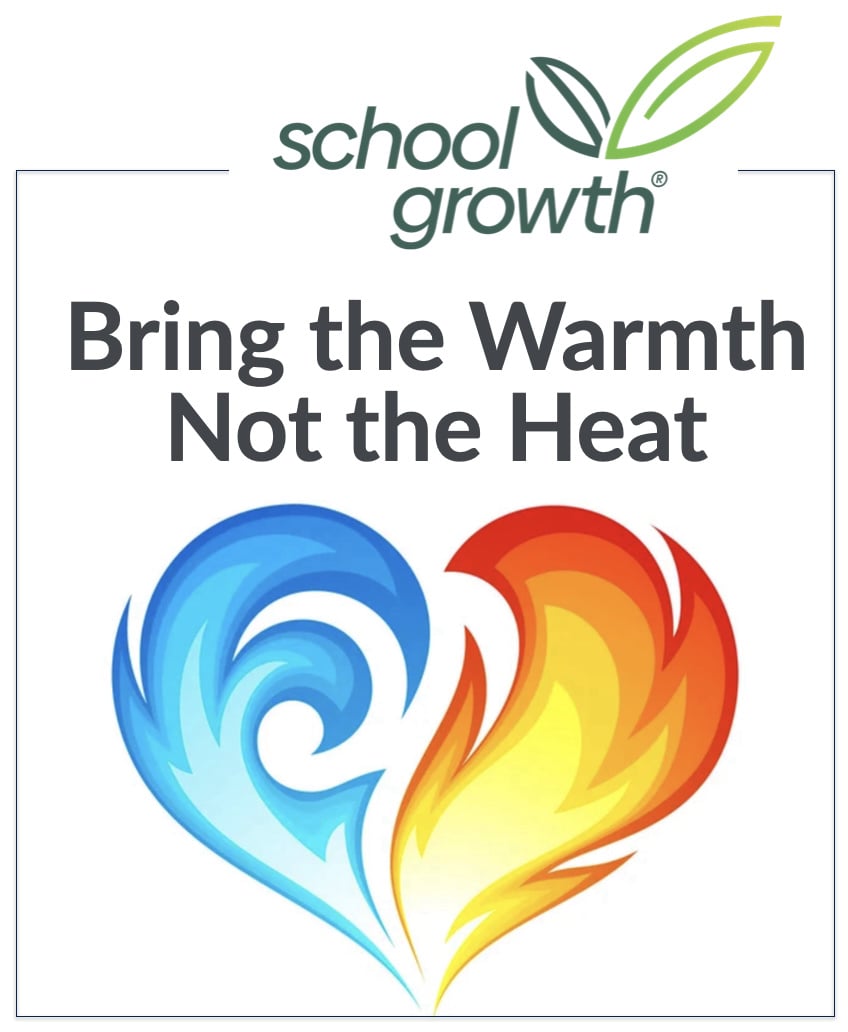
Bring the Warmth, Not the Heat
Love is a missing ingredient in too many of our schools, suffering from a lack of tenderness, generosity, and mercy. Optimal conditions for learning are not created through cold curricular conduct nor fiery rhetoric that burns bridges, undermines confidence, and stunts growth.
Such a void in affection and warmth is often the result of our escape into bureaucratic compliance, self-centered behaviors, and alliances of distrust that harden hearts.
The stakes are high when it comes to the engagement of educators and students. Our impact is optimized when we communicate both warmth and high expectations, and some wisdom I recently learned from a master teacher provides useful guidance.
The curriculum is so much necessary raw material, but warmth is the vital element for the growing plant and for the soul of a child.
— Carl Jung
Ever notice that when we hear someone say something particularly profound, it causes a pause?
Wait. Timeout. What did you say?
That happened to me during a recent Educators Among Us Podcast conversation with Sue Morphew, a retired educator from Iowa who taught for over thirty years and raised three children who are also educators.
(I can't wait to share the conversation I enjoyed with Sue and her son, Dr. Chris Morphew, Dean of the Johns Hopkins University School of Education. It goes live next week…)
Sue is both delightful and wise, and she shared some stories with useful insight from her long teaching career.
At one point, I asked her what advice she would give herself if she could go back in time to when she first started teaching. That profound pause happened when she said this in response: "Bring the warmth, not the heat."
All of you be harmonious, sympathetic,
loving, compassionate, and humble.
— 1 Peter 3:8
I immediately fell in love with that sage advice: Bring the warmth, not the heat!
Whatever we do should be carried out with intense desire and a fiery purpose, but we must be self-controlled and tempered by humility rooted in a purposeful perspective.
By using proven relationship-building techniques, we daily demonstrate our genuinely love and interest in them. Our positive words and body language are a powerful way to change their negative narratives into an energizing mindset that is conducive to learning and growth.
- We walk in harmony with each other, practicing mutual respect and cooperation.
- We remain sympathetic to each person's unique journey, helping them feel connected and understood.
- We love people, starting with our colleagues, because when we treat each other with care and compassion, that behavior spreads to students and their families.
- We foster a compassionate community that reduces the tendency for others to withdraw.
- We remain humble in service, recognizing our strengths and our limitations in order to elevate the whole.
It ain't the heat,
it's the humility.
— Yogi Berra
Educators who love, teach students to love.
To love people.
To love learning.
To love asking hard questions.
To love creating, collaborating, celebrating, and connecting.
An education changes anyone, but a talented engaged educator changes everyone!
Bring the warmth, my friend, moderating your temperature to grow faith, hope, and love.

.png?width=1000&height=199&name=SG-Logo3-Transparent-1000x199px%20(1).png)




